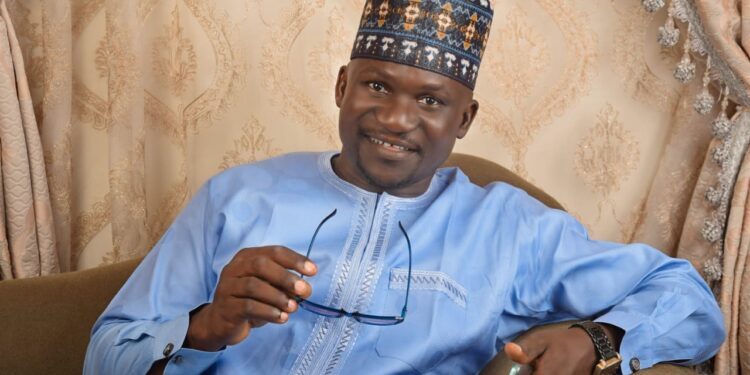By Amos Tauna, Kaduna
The National Secretary of the Liberal Progressive and Patriotic Members Congress (LPPMC), Eld. Yusuf Solomon Danbaki, has urged Nigerians in positions of authority—whether at the federal, state, or local government level—to confess and reconcile with the populace regarding their wrongdoings before it is too late.
He stated, “IBB’s decision to finally accept responsibility for his actions, although long overdue, is a courageous step that deserves commendation. It serves as a reminder that truth and accountability, regardless of how delayed, are essential for healing and progress.”
Danbaki described the June 12, 1993 election as a dark stain on Nigeria’s democratic history, symbolising the betrayal of the people’s will and the truncation of what many consider the freest and fairest election in the nation’s history.
In a statement on Saturday, he alleged, “The 2023 general elections, much like the June 12 election, have been marred by allegations of manipulation and irregularities. Many Nigerians believe that the current government came to power through questionable means, and the wounds from that process remain unhealed. It is disheartening to contemplate that it might take another 32 years for those in power today to acknowledge their role in undermining the democratic process, just as it took IBB decades to confront his past.”
He explained that IBB’s acknowledgment came at a time when he had the opportunity to make amends with God and history, stressing that for many of those in power today, time is not on their side, as by 2050, most of them will no longer be alive to seek redemption or reconciliation.
He reiterated that the luxury of waiting decades to accept responsibility is one they may not possess, stating, “This is why I call on all Nigerians, especially those in positions of authority illegally at the federal, state, or local government, to confess and reconcile with Nigerians over their wrongs before it is too late.”
According to him, Nigeria is at a crossroads, and the path to progress lies in unity, accountability, and genuine reconciliation. He emphasised that the lessons of June 12 and the recent gathering of former adversaries should serve as a wake-up call for all Nigerians.
“We must learn from the past, confront the present, and work together to build a future where the will of the people is respected, and the common good is prioritised over personal or partisan interests,” he observed.
He urged all Nigerians to embrace the spirit of reconciliation and hold their leaders accountable for their actions, asserting that they should not wait another 32 years to address the injustices of today. He believes that the time to act is now, for the sake of Nigeria and future generations.
The event, as described by former Vice President Yemi Osinbajo, brought together former adversaries to celebrate a fellow statesman, highlighting the power of reconciliation and the importance of setting aside past grievances for the greater good.
Danbaki stated, “It was a moment that showcased the possibility of unity, even among those who once stood on opposite sides of Nigeria’s political divide. While the gathering was symbolic, it also revealed a glaring omission: the failure to address the current divisions and enmities that continue to plague Nigeria’s political landscape.”
He remarked, “Osinbajo’s speech, though eloquent, did not acknowledge the present-day enmity in Nigeria’s journey, including his own relationship with his political godfather, President Bola Ahmed Tinubu. This omission is particularly striking given the history of their relationship. Once seen as allies in the struggle for a better Nigeria, their bond has been strained by the realities of power and politics. The same can be said for many others in positions of authority today, who were once united by a common vision but are now divided by personal ambitions and partisan interests.











